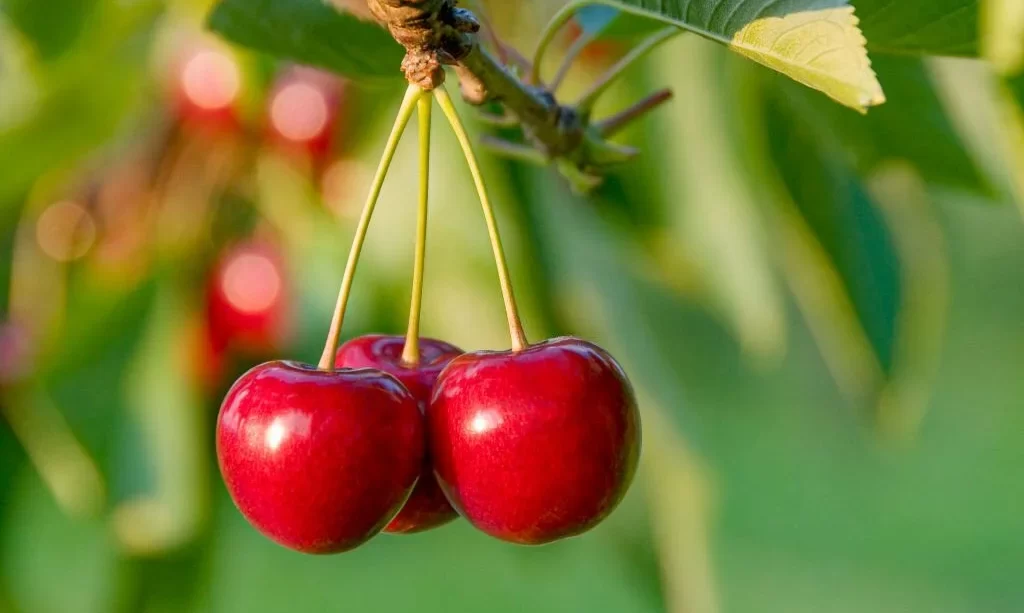The vibrant and juicy allure of cherries has delighted our taste buds and our eyes for generations. From succulent cherry pies to the simple joy of popping one into your mouth, cherries are a beloved fruit that transcends culinary boundaries. But what color is a cherry, exactly? In this exploration, we will unveil the palette of cherries, uncovering the natural hues that make these fruits both delectable and visually captivating. As we delve into the world of cherries, we discover the shades of red and other colors that characterize this iconic fruit.
The Natural Color of Cherries
The natural color of cherries, when freshly plucked from the tree, is a rich, vivid red. This classic red hue is the hallmark of many cherry varieties, signifying their ripeness and readiness to be enjoyed. As cherries mature on the tree, they undergo a transformation in color, transitioning from a more subdued green to the luscious red that beckons both humans and animals to savor their sweet and tangy flesh.
Shades of Red Cherries
Red cherries come in a delightful array of shades, ranging from bright and translucent reds to deeper, almost burgundy tones. These variations in color are influenced by several factors, including the cherry variety and the level of ripeness. For instance, Rainier cherries, known for their yellow to pink blush, present a lighter and more delicate shade of red. On the other hand, the classic Bing cherries display a deep, bold red that is often associated with this beloved fruit.
Ripeness plays a significant role in cherry color. As cherries mature and become riper, they tend to deepen in color, taking on a darker and more intense red hue. The shades of red cherries offer a visual feast that mirrors the spectrum of flavors, from the slightly tart and crisp to the sweet and succulent. These visual cues, along with the irresistible taste, make cherries an enticing and sensory delight in the world of fruits.
Other Cherry Colors
While the most common and widely recognized cherries are red, cherries can come in a surprising array of colors. One such variation is the golden or yellow cherry, aptly named Rainier cherry. These cherries, with their luscious yellow to pink hues, provide a delightful visual contrast to their red counterparts. Their flavor is often described as exceptionally sweet and mildly tart, making them a sought-after delicacy.
In contrast to the red and yellow cherries, there are also dark cherries, known as black cherries. Varieties like the Lapins cherry have a deep, nearly black color. These cherries are prized for their rich and intense flavor, making them a delectable choice for both fresh consumption and culinary applications.
Cherry Color in Culinary Applications
The color of cherries plays a significant role in culinary applications. The bright red and yellow hues of cherries can add a burst of color to a variety of dishes and desserts. Red cherries are often used as a vibrant and eye-catching topping for cakes, tarts, and pies, where their color creates a striking contrast with the dessert’s base.
Yellow cherries, such as Rainier cherries, are prized for their unique appearance and sweet flavor. They are excellent choices for creating visually appealing fruit salads or serving them fresh, either as a snack or as part of a cheese platter. Their cheerful color can brighten up any dish they adorn.
In baking, cherries’ natural colors can influence the overall aesthetics of a dessert. A cherry’s red or yellow hue can be the crowning jewel that enhances the visual appeal of muffins, cookies, and other confections. Their color also serves as a sensory indicator of their flavor, helping consumers anticipate the taste experience.
Ultimately, the diverse colors of cherries, from the classic red to the golden and dark hues, offer culinary artists and home cooks a palette of possibilities. Cherries are not only a flavorful addition but also a visually captivating one, enriching the world of cuisine with their delightful appearance.
The Symbolism of Cherry Color
The red color of cherries has deep cultural and symbolic associations in various societies. It often represents feelings and emotions, ranging from love and desire to passion and intensity. In some cultures, the red of cherries symbolizes good luck, while in others, it signifies energy and vitality. Cherries have been incorporated into traditions and celebrations, serving as a visual and sensory representation of these meaningful sentiments.
In addition to personal and cultural symbolism, the red color of cherries is often linked to the changing seasons. The arrival of ripe, red cherries signals the transition from spring to summer in many parts of the world. This transition is celebrated with cherry festivals, bringing communities together to enjoy the visual and culinary delights that cherries offer.
Frequently Asked Questions
Do cherries with different colors taste different?
Yes, cherries with different colors can have distinct flavors. For example, red cherries tend to be sweet and slightly tart, while Rainier cherries, with their yellow or pink hue, are exceptionally sweet.
What gives cherries their red color?
The red color of cherries is primarily due to anthocyanins, a type of flavonoid pigment. These compounds develop as cherries ripen and play a role in both color and health benefits.
Are black cherries truly black in color?
While they are often referred to as black cherries, they are more accurately very dark red to nearly black in color. They have a rich, deep hue.
Are there any cultural traditions associated with cherries and their color?
Yes, cherries and their red color are integral to many cultural traditions and festivals worldwide. They are often linked to celebrations of love, fertility, and the changing seasons.
Conclusion
The color of cherries, with its rich symbolism and visual appeal, adds a layer of depth to our appreciation of this delightful fruit. Whether it’s the classic red cherries that symbolize love and vitality, the golden shades that brighten our fruit salads, or the dark cherries that offer intense flavors, the colors of cherries enrich our culinary experiences and cultural traditions.
Cherries, in their varied colors and flavors, are a reminder that food can be a multisensory delight, transcending taste to include aesthetics and symbolism. As we enjoy the taste of cherries and savor the vibrancy of their colors, we partake in a sensory journey that connects us to cultures, seasons, and the beauty of the natural world. Cherries are not just a fruit; they are a symbol of the rich tapestry of life and human experiences.



